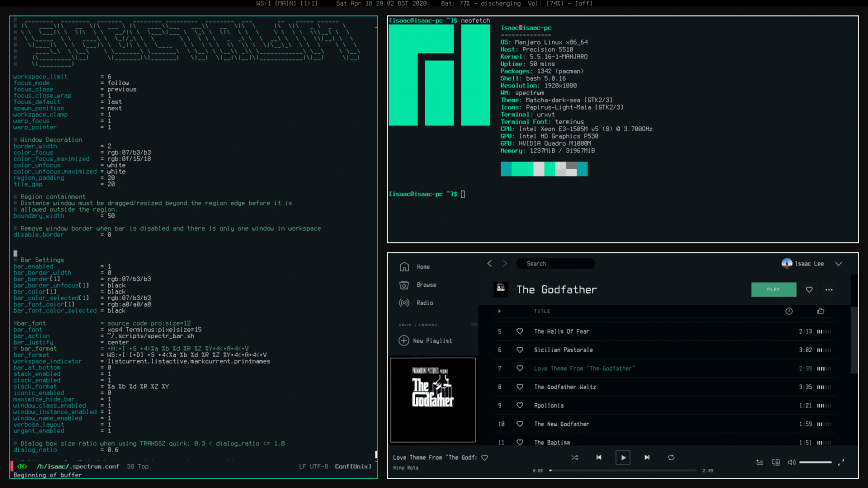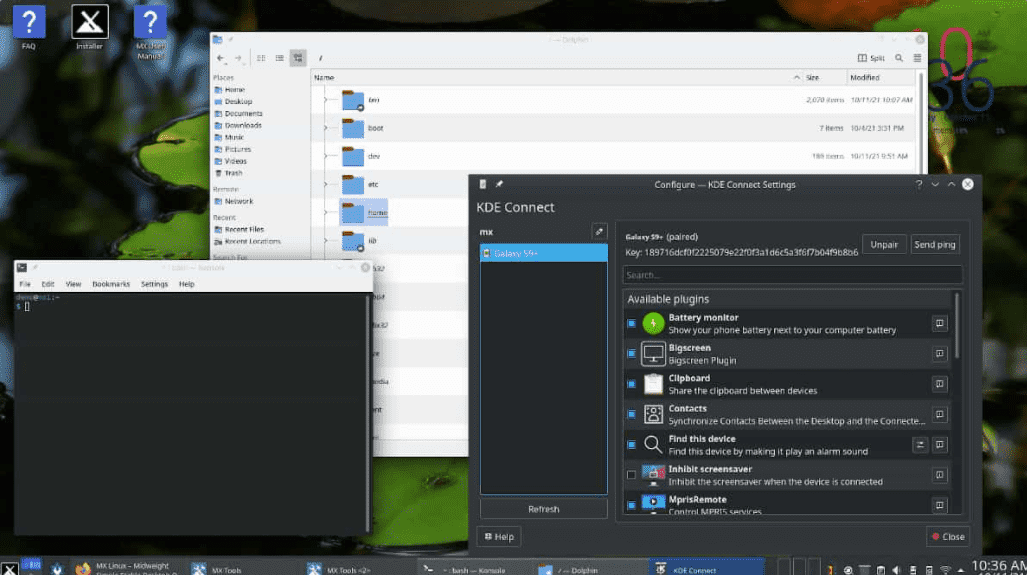

- PERFECT LIGHTWEIGHT LINUX DISTRO FOR VMS HOW TO
- PERFECT LIGHTWEIGHT LINUX DISTRO FOR VMS UPGRADE
- PERFECT LIGHTWEIGHT LINUX DISTRO FOR VMS PC
- PERFECT LIGHTWEIGHT LINUX DISTRO FOR VMS FREE
Now for storage, look for a hardware cached RAID controller, there are some fantastic deals on some older RAID controllers on EBAY, like less than $20.
PERFECT LIGHTWEIGHT LINUX DISTRO FOR VMS FREE
The biggest issue you might see with the free version ESXi is that your Ethernet card/chip might not be supported Of course, standalone versions are always faster, but the margin is far smaller than you'd expect, with a VM frequently only 1-5% slower, something most users will never see. VM's do not require quite as much RAM as when running standalone to get similar performance. The free version can handle a single host just fine, and with your 16GB of RAM be able to support at least 4 VM's at once, and perhaps more depending on the RAM requirements of the VM's. If you are thinking the hypervisor route, performance will be far better than you might think, remember, enterprise computing is far more challenging, and also runs 24/7/365 with big demands on both compute and disk, and ESXi is the market share leader for speed and reliability reasons. Ubuntu is popular because of the Canonical support availability, but for me frequently changes things just to be different, not because it's better, also, in a server environment you need to make sure you're using one of the 'LTS' releases (Long Term Support), where updates are provided for a MUCH longer time. The most rock solid distro is probably CentOS, as most of it's development comes straight from Red Hat Enterprise, just with the naming changed. If you pick the 'tumbleweed' version it is continuously updated, and is still reliable. My personal choice is Suse, but mostly because I'm most familiar with it. So don't be afraid of the Desktop versions to do server stuff. Linux runs quite nice on less than 4GB of RAM, add a max of another 1GB for Xwindows, and you still have plenty for your apps. Xwindows can add a fair amount of overhead, but if you can't do everything from the command line (or have to look it up each time you need it) then X is a good way to go. PSU: CiT 500W 80+ (I know it's cheap crap but it'll do for now till I get better hardware)Īny of the Linux distro's mentioned will work fine, the only major difference between the 'desktop' and 'server' versions of them is the inclusion (or lack thereof) of Xwindows and a desktop environment. Storage: TBC - I'm thinking boot from USB and use IronWolves in RAIDZ for storage

Mobo: MSI 2A9C (MS-7613 from HP Pavilion 6000 series) Initial hardware (subject to future upgrades):ĬPU: i5-650 3.2GHz (3.4GHz boost) Clarkdale
PERFECT LIGHTWEIGHT LINUX DISTRO FOR VMS HOW TO
network config, managing storage, etc.) so that kind of rules out the LTS version of Ubuntu Server unless anyone knows how to install XFCE on it. I don't mind using CLI/SSH for most things but I would prefer a desktop environment or a web GUI for tasks that either can't be done over SSH or would be easier in a GUI, (e.g. I've tried Ubuntu Server 18.04 LTS on a VBox VM purely just to play around with it and test the functionality of the services I'll be running.
PERFECT LIGHTWEIGHT LINUX DISTRO FOR VMS UPGRADE
(I know FreeNAS has a Plex plugin but it can only run Pi-Hole in a Linux VM, adding overhead.) It would also be nice to have long term support or a rolling release so I don't need to fully upgrade the OS every few months. It also needs to be lightweight because it'll initially be running on fairly old hardware (see below). I would like to use a Linux-based OS so I don't need to run Pi-Hole or Plex in a VM/jail. The OS needs to be stable and, most importantly, secure. I may also add other services in the future if I need them. Pi-Hole - Sorry Linus. It's the advertisers' fault, not the content creators'.

PERFECT LIGHTWEIGHT LINUX DISTRO FOR VMS PC
I want to convert my old PC into a home server but I need some help picking an OS. I've heard that Ubuntu Server, Debian, Fedora, CentOS and OpenSUSE are some of the best but I need help picking the right one for my needs as I'm still fairly new to the Linux scene.


 0 kommentar(er)
0 kommentar(er)
